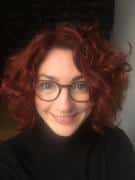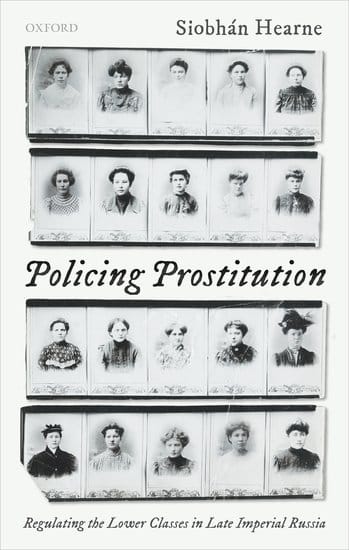
Siobhan Hearne
Leverhulme Early Career Fellow at Durham University (UK)
When did you first develop an interest in Slavic, East European and Eurasian Studies? [feel free to describe your career path more broadly]
My love for Russian history and culture began when I was sixteen and at secondary school. I was lucky enough to have a wonderful history teacher who made the subject of the Russian revolutions of 1917 come alive and who encouraged me to read Russian literature in translation. When I went to university, I chose modules on Russian/Soviet history and coerced one of my friends into spending a few weeks travelling around Russia and the Baltics with two backpacks, very little money, and absolutely no knowledge of the Russian language. I loved studying Russian/Soviet history so much that I decided to do an M.A., study the Russian language, and then go on to do a Ph.D.
What support have you received throughout your career (from ASEEES / other societies / federal support / etc.) that has allowed you to advance your scholarship?
I couldn’t have studied Russian or completed any of my research without the financial support of the UK’s Economic and Social Research Council (ESRC) and the Leverhulme Trust. The ESRC funded my M.A. and Ph.D. at the University of Nottingham, as well as intensive Russian-language training. Since finishing my Ph.D., all my postdoctoral research has been funded by the Leverhulme Trust. A Leverhulme Study Abroad Fellowship (2017-2018) meant that I was able to conduct further research in Latvia, Estonia, Lithuania, Belarus, and Russia, as well as turn my Ph.D. thesis into a book. My research continues to be supported by Leverhulme in the form of an Early Career Fellowship, which I currently hold at Durham University in the UK.
What is your current research/work project?
I am currently working on a project about military masculinity in the late Russian Empire. I’m particularly interested how Russian military/civil authorities and medical experts used corporeal regulation in their efforts to construct the ideal soldier and sailor, and how military personnel from different ethnic and religious backgrounds experienced such regulation. I’m examining corporeal regulation in relation to sexuality, disability, physical culture, and nutrition in order to explore the impact of the human and medical sciences upon military masculinities in the Russian Empire.
How do you envision your current research projects(s) within the broader field of SEEES?
My past and current research contributes to histories of gender, sexuality, and medicine in the Russian Empire and the Soviet Union. I’ve published on the history of prostitution and venereal diseases in the Russian imperial and Soviet contexts, most recently my book, Policing Prostitution: Regulating the Lower Classes in Late Imperial Russia (OUP, 2021).
I am also one of five editors working on a collaborative digital history project called Peripheral Histories? The project is all about highlighting peripheral spaces, actors and events, examining the changing status of and relations between “centres” and “peripheries,” and exploring the ways in which borderlands have been remade in particular historical circumstances. Our website provides a space to share emerging research on regions and peoples of the former Soviet Union and Eastern Europe that have been perceived as geographically, politically or culturally “peripheral.” As well as our website, we organise webinars on researching and teaching “peripheral” histories.
What does your ASEEES membership mean to you? How has your involvement with ASEEES helped to further your career?
The most valuable part of my ASEEES membership is the community. The annual conventions are a highlight of my academic year. Not only have they given me the opportunity to connect with researchers from a variety of disciplines, but they also allow me to keep in touch with friends who are based all over the world.
Besides your professional work, what other interests and/or hobbies do you enjoy?
I love running, hiking, growing flowers and vegetables, and reading fiction. I also spend a lot of time trying to learn Italian and annoying my friends by talking too much about the Eurovision Song Contest.
